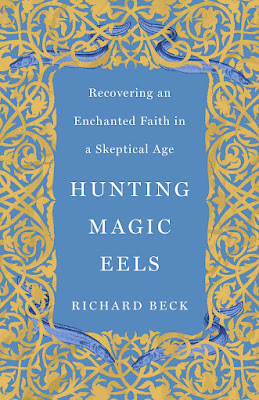Toward the end of 1 John there is a puzzling and controversial passage:
If anyone sees a fellow believer committing a sin that doesn’t lead to death, he should ask, and God will give life to him—to those who commit sin that doesn’t lead to death. There is sin that leads to death. I am not saying he should pray about that. All unrighteousness is sin, and there is sin that doesn’t lead to death. (1 Jn. 5.16-17)
In this exhortation regarding petitionary prayer, two sorts of sins are described. There is a sin that "doesn't lead to death" and there is a sin that "leads to death." What, exactly, is 1 John talking about here? Specifically, what is the nature of these two types of sin?
Historically, there have been two streams of interpretation regarding the sin that "leads to death." On the one hand is the view that what is being described is a sin that is so grievous it places one's soul at risk. For example, in the Catholic church there is a contrast between venial (for example, lust or telling a lie) and mortal sins (like murder). Venial sins, being less severe, do not separate you from God. Mortal sins, by contrast, separate you from sanctifying grace. Dying in a state of mortal sin, therefore, would "lead to death."
An alternative take on this text goes back to the topic of the last post. Specifically, the sin that "leads to death" isn't a particular sin but is, rather, a continued habit or pattern of sinning. That is, there are occasional and isolated sins committed by those striving to do the will of God. These sins don't lead to death. By contrast, intentional and continual rebellion against God would lead to death.
What is to be said about these two views? Is the sin that "leads to death" a particular, grievous sin? Or is it willful and habitual rebellion?
The answer I floated out at the unit (recall, these are notes from my Bible study out at the prison) goes back to the point I made in the last post. Specifically, I think the issue here continues to concern the atonement. Let's back up and read the text right before the passage in question:
The one who believes in the Son of God has this testimony within himself. The one who does not believe God has made him a liar, because he has not believed in the testimony God has given about his Son. And this is the testimony: God has given us eternal life, and this life is in his Son. The one who has the Son has life. The one who does not have the Son of God does not have life. I have written these things to you who believe in the name of the Son of God so that you may know that you have eternal life. (1 Jn. 5.10-15)
Notice the focus on the work of Christ. The one who has the Son has life. And the one who does not have the Son does not have life. Everything is dependent upon one's relationship to Christ.
Then, right after the "sin that leads to death" passage, we read this:
We know that everyone who has been born of God does not sin, but the one who is born of God keeps him, and the evil one does not touch him. (1 Jn. 5.18)
Here it is again, the same point we discussed in the last post: The one who has been born of God does not sin. Which, as we noted in the last post, sits in seeming contradiction with 1.8: "If we say, 'We have no sin, we are deceiving ourselves, and the truth is not in us." How to make sense of this?
Well, if the argument I made in the last post is correct, then the issue here, regarding the sin that leads to death, is less about a particular sin or a pattern of sinning. Rather, the issue goes back how one relates to the work of Christ. The passage regarding the sin that "doesn't lead to death" is preceded by a passage describing how the person who has the Son "has life" (i.e, not death). Further, after the passage about the sin that "doesn't lead to death" we revisit the theme that the one who has been born of God "does not sin." As I argued in the last post, this sinlessness is due to the fact that there is no sin "in him" (that is, "in Christ").
Summarizing, it seems to me the issue concerning the sin that "leads to death" is if our sin is taking place "in Christ" or not. If our sin is taking place "in Christ" we are in a state of both life and sinlessness because, as 2.1-2a declares: "If anyone does sin, we have an advocate with the Father—Jesus Christ the righteous one. He himself is the atoning sacrifice for our sins."
An additional thing to note here is the Greek preposition pros, generally translated as "unto." Pros means "toward," as in tending or heading toward a destination. There is a sin, therefore, that is "going somewhere," either toward death or not.
Basically, here's my take about all this. The sin that doesn't lead to death is the sin of the Christian who remains in Christ. This sin doesn't lead to death because of the atoning work of Christ (see, again, 2.1). By contrast, outside of Christ there is no atonement. Sin outside of Christ, therefore, is tending toward death. Sin outside of Christ takes you down the dark road.
Stated even more simply, the sin that doesn't lead to death is the sin of those in Christ. Outside of Christ, however, sin has a destination. And that destination is death.






.jpeg)








